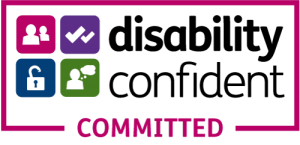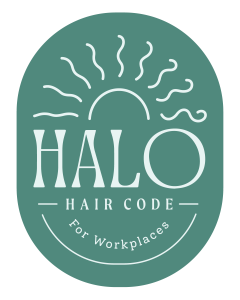Our EDI Journey
We believe that victim-survivors receive the best support when small, local specialist charities like ours are available, particularly those offering services delivered "by and for" individuals with protected characteristics.
As a women-centred, independent local charity, we specialise in the prevention and recovery of abuse and violence against women and girls (VAWG). For nearly 30 years our primary service users have been women with children. Our services are designed and led by individuals who share the same protected characteristic (sex: women) and lived experiences (abuse intersected with parenting) as those we serve, enabling us to provide truly trauma-informed care.
Equality, diversity, and inclusion (EDI) are at the core of everything we do. Without a serious commitment to EDI, our relationships with minoritised communities would lack authenticity. We encourage our staff, volunteers, and trustees to be open-minded and challenge biases and assumptions to foster deep, trusting, and mutually beneficial relationships with these communities. Given that most of our clients are women that have experienced gendered violence at the hands of males, our EDI journey has been complex, and at times challenging, for a team whose core belief is inclusivity.
Timeline of Key Developments:
2016
After completing our training, we began offering the Freedom domestic abuse recovery programme to women. While we appreciated many elements of the programme, we had concerns about its exclusive focus on heterosexual relationships and identified some content gaps. We frequently received referrals from LGB women whose abusers were female, and they were seeking support for their recovery.
2018
In collaboration with a postgraduate student from Brighton University, we developed our own recovery programme. which aligns with SafeLives Leading Lights quality standards and integrates best practice from around the world. It specifically welcomes and supports LGB women victim-survivors.
Equalities Data
We use equalities data to ensure we are reaching a wide range of clients and to identify areas where we need to improve outreach and when we started delivering the new programme initially saw an increase in LGB women attending:
- 2020-21: 6.73%
- 2021-22: 7.3%
- 2022-23: 13.3%
In 2023-24:
- 6% of women in our domestic abuse recovery groups identified as LGB parent
- 5% of all our clients identified as LGB parent across all services (3% in the local population)
"I liked it that the group was inclusive of same sex couples".
2019
Our staff and trustees participated in EDI training provided by an LGBTQ+ specialist charity, who understandably, advocated for trans inclusion, in line with their mission and Objects. However, as specialists in women’s services, we recognised the importance and responsibility of carefully considering the impact of this recommendation rather than uncritically adopting it. This prompted us to begin discussions and research on whether to widen the eligibility criteria our recovery groups to include men and those from the trans, non-binary and intersex (TNBI) community.
We conducted three impact assessments to explore the consequences of modifying our inclusion criteria for our domestic abuse recovery groups:
- fully inclusive for all self-identified victim-survivors (women, men, trans, non-binary and intersex people).
- Inclusive of self-identifying women and non-binary people (i.e. women registered female at birth, trans women, intersex people who identify as women, and non-binary people registered female at birth).
- inclusive of women and non-binary people registered female at birth.
Our goal was to uphold a fair and inclusive culture, ensuring safety, dignity, and privacy while maintaining a trauma-informed approach. Three key issues emerged:
Cultural and Religious Barriers: Women from some minoritised conservative ethnic communities, including practicing Muslims and Orthodox Jewish women, can only attend single-sex groups. These women would face religious prohibitions if the groups included anyone who was registered male at birth. These vulnerable women would self-exclude if it was not a single-sex group. There are no alternative single-sex local groups they could access.
Trauma/PTSD Sensitivity: Many women accessing our services suffer from trauma/PTSD and often experience chronic vigilance and sensitivity to perceived threats, including a fear of men/maleness. These vulnerable women would self-exclude if it was not a single-sex group. There are no alternative single-sex local groups they could access.
Duty of Care: It is essential that any clients attending the group, however they identify, feel safe and welcome, as we have a duty of care to them all. If clients do not feel secure, there is a risk of self exclusion as well as the risk of legal consequences to consider. For instance, a sexual abuse charity running a sexual abuse recovery group allowed a self-identifying woman to attend the group and the charity is now facing a discrimination lawsuit from a female survivor.
Balancing these factors, we recognised that any decision we make would prioritise one protected characteristic over another. We also recognised that there are already specialist local services that men and the LGBTQ community could access. Given that most of our clients are women and that there are already specialist services for those not eligible, we decided that maintaining a Single Sex Policy for our women's recovery groups was the most proportionate and fair approach.
“Thank you for offering a single-sex domestic abuse recovery group. My sister, a practicing Muslim, can attend because it is not mixed-sex.”
Our child-to-parent violence service remains fully inclusive, welcoming any parent or carer dealing with an abusive child aged 8-17.
In our Equality & Diversity Policy, we define Equality, Diversity, and Inclusion while acknowledging that full inclusivity is not always the most equitable approach. This is especially true when supporting recovery from gendered violence, as our services must remain accessible to all women from minoritised ethnic communities and women who have a persistent fear of males. We recognise that true recovery can only occur in spaces where all individuals feel safe. Our Single Sex Policy outlines how we lawfully use the exemptions the Equality Act to provide female only spaces. While we understand that not everyone will agree with this stance, we believe it is the fairest for the majority of our clients and survivors.
We strive to be transparent about our eligibility criteria so that all victim-survivors and referrers clearly understand who can access each service. This ensures that:
Women victim-survivors know our recovery groups are safe spaces specifically for women.
All group participants feel welcomed and respected by others in the group.
Everyone who interacts with us is treated with dignity, aligning our words with our actions.
As a women’s charity that limits its recovery groups to women, excluding non-women with other protected characteristics, our approach aligns with other specialist charities that prioritise serving specific communities with protected characteristics. For instance, an LGBTQ+ charity restricts its groups to LGBTQ+ individuals, excluding heterosexual people with other protected characteristics, so do not cater to much of our client base who are heterosexual women. There is space for all of us to work together, like a jigsaw, ensuring that overall, the needs of all victim-survivors are met. Our goal is to make a meaningful contribution to the complexities of EDI, and we are eager to share our knowledge and experience in this area.
Male Victim-Survivors
We believe that every victim-survivor of abuse should have access to local support, tailored to their specific needs. While we do not have the resources, remit or staff expertise to support male victim-survivors looking for recovery support directly, we signpost to Respect, a trusted specialist male domestic abuse charity that understands the specific challenges men face. We do welcome Dads/male carers, in our child/adolescent-to-parent violence and abuse (CAPVA) group.
Transgender and Non-Binary Victim-Survivors
We understand that transgender, non-binary and intersex (TNBI) individuals are vulnerable to intimate partner violence. The 2021 Census confirms that in our geographical area around 0.7% of residents (16+), identify with a gender different from their sex registered at birth.
We signpost TNBI victim-survivors to Brighton Switchboard, the local specialist LGBTQ+ recovery service, where staff bring both lived experience and expertise. Additionally, we aim to support this charity's sustainability, recognising the limited number of TNBI clients there are in our area. However, we are fully committed to providing one-to-one IDVA support to any local TNBI victim-survivors who would prefer to receive support from us for any reason. Additionally, we welcome any parent/carer, however they identify, in our child/adolescent-to-parent violence and abuse (CAPVA) group.
"I liked it that the group was inclusive of same sex couples".
This year our EDI focus is to improve access to our services for those with a disability and develop stronger relationships with local disability groups.
Many of those we support have been subjected to domestic abuse and other crimes. Our services can be accessed by victim-survivors both in and outside of the criminal justice system, whether or not any crime has been reported.
Lotus Families want to be part of a community that drives social action over and beyond our organisational aims.
If you’d like to receive any of our documents in an alternative format:
Please email hello@lotus-families.org.uk or phone 01273 612025.
The following statement of policy is for use by all employees and volunteers working within Lotus Families:
Lotus Families is a women-led and centred family charity specialising in supporting victim-survivors of abuse.
We are committed to offering trauma-informed, strength-based services that are accessible, fair, and safe for all our service users. Our approach is always evidence-based, prioritising safeguarding best practices while balancing the needs of those we serve.
As an organisation, we are dedicated to eliminating discrimination, promoting equality, and fostering good relations between diverse groups. We work to reflect the diversity of our community in our workforce, volunteers, and trustees, and uphold the principles of the Equality Act 2010 to ensure fairness in all aspects of our service provision and employment practices.
Due to the gendered nature of our work, our domestic abuse recovery groups are single-sex spaces, as we believe this is a proportionate means of achieving a legitimate aim, in line with the Equality Act 2010. This approach ensures that women survivors can feel safe, supported, and empowered in their healing journey.
We strive to create an inclusive environment that empowers our service users, staff, and volunteers to feel valued and respected, while making a meaningful contribution to the advancement of equality and human rights.
We are committed to addressing prejudice and discrimination by:
- Ensuring the effectiveness of our Equality, Fairness and Diversity policy
- Being clear and open about our values and approach
- Listening, learning and taking action to bring about positive change
We want anyone who is eligible to use our services to have the opportunity to do so.
The COVID-19 pandemic led to a transition to remote service delivery. We found this increased access for those with anxiety, travel restrictions or caring responsibilities, so we have continued to offer some remote services. However, it has also reduced equality of access for some.
If you would like to use one of our services but are currently unable to access them due to not having the necessary devices, wifi/data or tech literacy, please get in touch and we will try to identify a way of helping you to join us.
Lotus Families is a Disability Confident employer.
We believe that people with disabilities and long term health conditions should have equal opportunities to fulfil their potential and realise their aspirations.

Lotus Families has adopted the The Halo Code
We champion the right of staff to embrace all Afro-hairstyles and acknowledge that Afro-textured hair is an important part of our Black employees’ racial, ethnic, cultural and religious identities.
We are a community of women built on an ethos of equality and respect where hair texture and style have no bearing on an employees ability to succeed.
